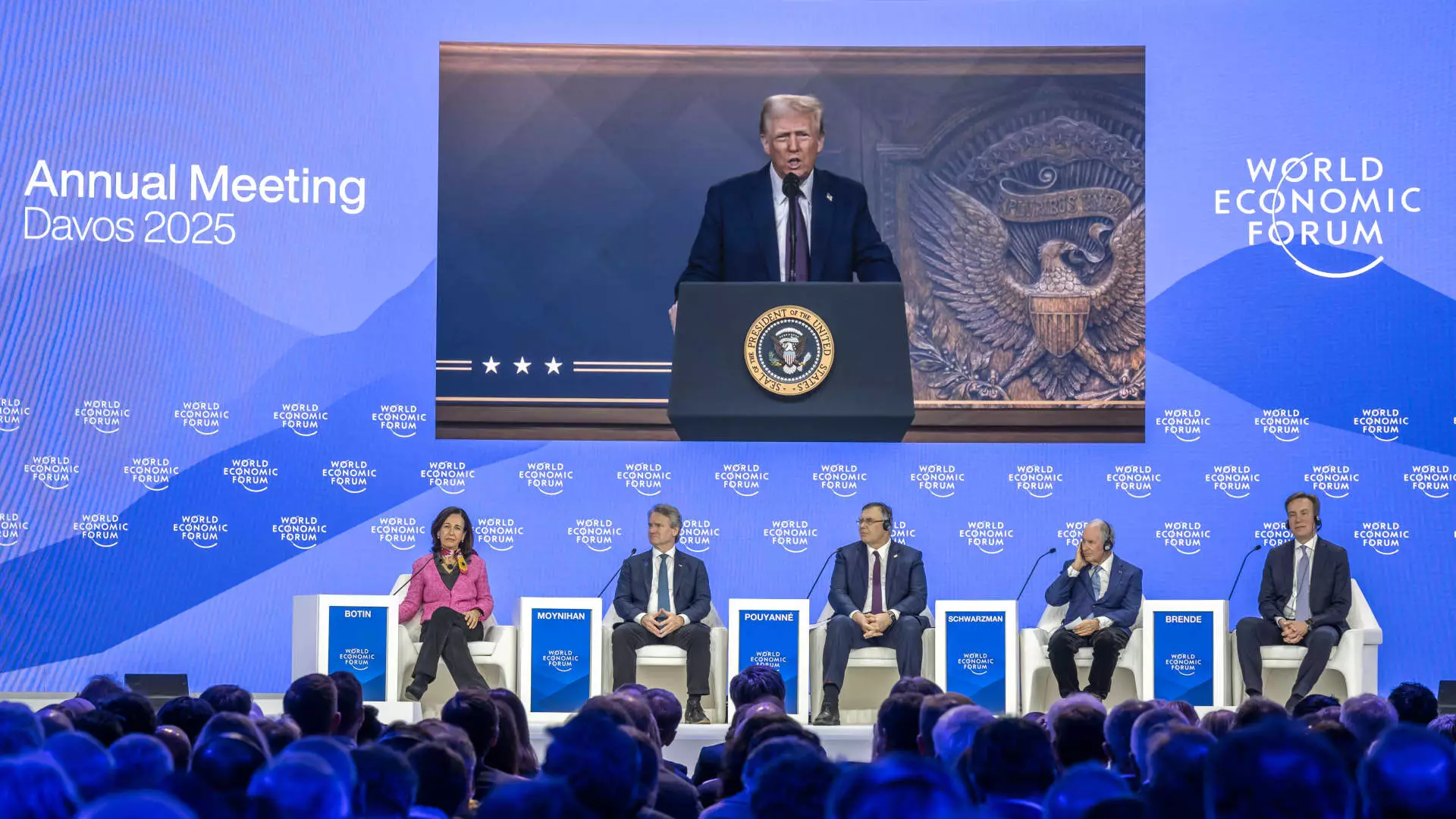The recent remarks made by former President Donald Trump regarding major American banks have reignited a longstanding debate about the intersection of finance and politics. While speaking at the World Economic Forum in Davos, Switzerland, Trump targeted CEOs from two of the nation’s largest banks, Bank of America and JPMorgan Chase. He accused them of discriminating against conservatives, a claim that has been met with strong denials from both institutions. This article delves into the implications of Trump’s claims, the responses from the banking sector, and the broader context that underlines these allegations.
In his statement, Trump explicitly urged Bank of America CEO Brian Moynihan and JPMorgan Chase CEO Jamie Dimon to foster a more welcoming environment for conservative clients. His assertion was not merely a casual critique but rather a strategic maneuver as he prepares for a potential 2024 presidential run. By framing the banking sector as biased against conservative ideologies, Trump seeks to mobilize a specific voter base likely to resonate with such allegations of elitism and exclusion.
This not only places the CEOs in a difficult position, but it also plays into a broader narrative of victimhood that appeals to many in Trump’s constituency. This approach mirrors contemporary political rhetoric that often paints large institutions as antagonistic to the interests of ordinary citizens, particularly those with conservative values. The implications stretch beyond the immediate claims; they touch on the societal fractures around political affiliations and financial inclusivity.
In the wake of Trump’s accusations, both Bank of America and JPMorgan Chase swiftly countered the claims. They collectively insisted that they serve a vast clientele, encompassing individuals from a range of political persuasions, and emphasized their commitment to non-discrimination in banking services. Statements from both banks explicitly stated that political beliefs do not factor into decisions regarding banking services.
Bank of America reiterated its service to around 120,000 faith-based organizations, contrasting the accusations with its history of engaging with a diverse array of clients. JPMorgan Chase took a similar stance, asserting its adherence to legal frameworks and regulatory guidelines without political bias. This defensive posture underscores the banks’ need to maintain a reputation for fairness and inclusivity, particularly in an environment where public trust in financial institutions is fragile.
The claims made by Trump are not entirely baseless, as the banking sector has faced scrutiny in the past for its regulatory practices. Following the 2008 financial crisis, increased pressure from regulators has pushed banks to distance themselves from industries perceived as high-risk, which sometimes leads to de-banking scenarios. This regulatory framework was designed to promote accountability and reduce the potential for financial crime, but it inadvertently creates a landscape where clients in certain sectors may feel unjustly marginalized.
The complex relationship between banks and regulatory bodies raises the question: Is the de-banking of specific clients a matter of risk management, or are these financial institutions engaging in politically motivated discrimination? The nuances in banking decisions can often fall prey to hyperbolic interpretations, complicating an already charged landscape with political context.
Trump’s accusations have broader ramifications, potentially influencing not only public opinion but also future regulatory conversations. If a significant portion of the electorate believes that financial institutions are biased against their viewpoints, this could spur calls for new regulations—potentially under a future Trump administration—focused on ensuring access to banking services across the political spectrum.
Moreover, influential figures in Trump’s sphere—like venture capitalist Marc Andreessen—have echoed concerns that startups and conservative entrepreneurs are facing increasing challenges in obtaining banking services. This may lead to a growing mistrust of financial institutions among certain demographics, which could inadvertently stifle innovation and entrepreneurial efforts.
As the narrative unfolds, it becomes clear that the issues surrounding Trump’s accusations against Bank of America and JPMorgan Chase are far from simple. They touch on foundational questions regarding the role of financial institutions in a politically diverse society. With both the banking sector and political figures navigating this complex environment, the future will likely see continued discussions on how best to balance regulatory obligations with ensuring equitable access to banking for all constituents, regardless of their political beliefs. The ability of these institutions to maintain their reputations while engaging in necessary risk management will be essential in shaping their futures in this politically charged atmosphere.

